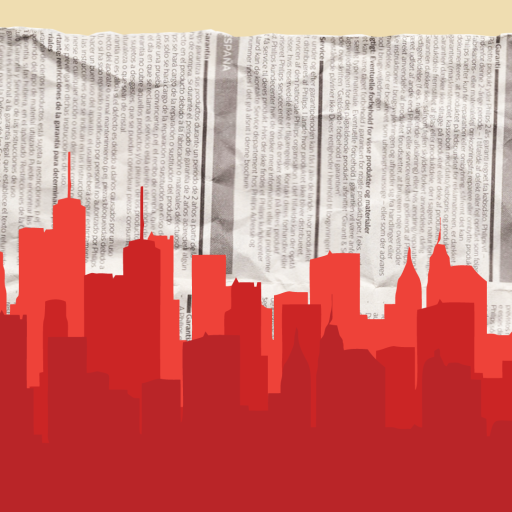Conflicting Approaches to Urban Life and Modernity
15 Ekim 2022İrem Gültekin
Modernization is the revolution carried out by the bourgeoisie, a revolution that started by disrupting the mode of production and, during that process, radically changing the whole lifestyle. The bourgeoisie has always needed to maximize their own profit and keep and expand their privileges by constantly evolving and shifting from one shape to another. In the meantime, the society, where all social relations are based on production and mode of production, was also transformed by that privileged class. The entire social structure was shaped into something that had never appeared until that time. The people, who existed together with the communities they belonged to or were born in, who collaborated and lived according to their traditional patterns, were liberated from these communities, life patterns, and traditions. Human beings became individualized.
In this way, rural life, to which all these characteristics belong, got abandoned. Small villages in which people consumed what they produced were left altogether. The labourers, the working class, settled in the cities where consumerism, individualism, and loneliness dominated. Some intellectuals, including Karl Marx, were not delighted, while others, including Baudelaire, were fascinated by modernity, its modern human, and all its characteristics.
According to Marx (1888), communities were disintegrated as a consequence of individualisation; people became isolated. They were alienated from their own labour; they became individuals who lived in isolated houses in modern cities. The bourgeoisie exploited human labour even more, when capitalism was institutionalized with modernity.
This transformation, the revolution of the bourgeoisie, replaced the feudal society with a capitalist society. The bourgeoisie has achieved even more economic and ever-increasing political supremacy with their latest invention: the modern capitalist social structure.
The capitalist social structure put an end to rural life and its characteristics. The bourgeoisie class became more than the oppressor and the exploiter; it became the ruler. They did not rely on the old traditional relations of even their society. On the contrary, after this massive social transformation, every single member of society became liberated from the characteristics of being a member of a community. The strict norms of traditionalism and fatalism were no longer valid. They eradicated the religious, political, social, sexual, and economic dependency between people, which were the characteristics of feudal society. As a consequence of individualisation, the modern human was created. Once rural life was destroyed and human behaviours were transformed, urban life and its individualist modern cities emerged.
In this perspective, the bourgeoisie played an extremely revolutionary and historical role for the entire world. Despite the capitalist system and the bourgeoisie seeming to liberate people from all rudimentary practices of the rural and old traditional life, they actually condemned them to their own system of exploitation even more.
Besides Karl Marx, Georg Simmel was one of the sociologists who criticised the modern lifestyle and urban life. He had the most remarkable ideas on urban life and its burden on humanity. The modern metropolis was an object of sociology as it affected the whole society, in other words, every single member of the society. The modern city had a central place in the life of individualised modern human. The most fundamental issue with modern life arises from the efforts of those individuals to protect their liberty and self-government from the enormous social pressure, historical heritage, and traditions. An individual, a modern human who lives in a complex modern city and its social, economic, and cultural environment, faces too many problems and situations that rapidly change and conflict with each other. As a consequence of these struggles, the modern individualised human has to develop a personality that is strong enough to protect themself from the unprecedented changes, never-ending conflicts, threats, and danger of the modern outside world as well as its cities. In order to develop this personality, the modern citizen would no longer decide with their heart and no longer behave according to emotions or perceptions. This is a crucial trait that separates urban life from rural life (Simmel, 1950). The modern human has to be totally different and more obscure than an ordinary human who lives in a village. One will not hesitate to live freely and with her feelings and perceptions by taking risks, while the other has to live by trying to protect their life and the living conditions of modern life with logic and reality. We can say that modern life is a brain while rural life is a heart.
Unlike Karl Marx and Georg Simmel, Charles Baudelaire was delighted by the modernism and its characteristics that new modern people had. While criticizing the modern cities for losing their unique identity and heritage, he also admired them. Modern life and the modern city gave a new character to the individualized human. This entirely new human identity, in fact, was not so negative: a new cosmopolitan human type was born. The new human being, liberated by modernism, not belonging to a place and free from all the primitive traditions, was admirable. Baudelaire called this type of human “a citizen of the universe” (Baudelaire, 1863). In addition, rural life was difficult as it required a tough and invincible conflict with nature. Instead, urban life, where we struggle with millions of people or the traffic, was easier.
Despite its positive aspects, modern life and its cities are still very complex for humans to live in prosperity. We are alone, alienated from our labour, and even alienated from ourselves while trying to get through all the difficulties of modern cities.
References
- Baudelaire, C. (1964). The painter of modern life, and other essays (J. Mayne, Trans.). Phaidon. (Original work published 1863).
- Marx, K. & Engels, F. (1888). Manifesto of the Communist Party. William Reeves. https://jstor.org/stable/60230192
- Simmel, G. (1950). The Metropolis and Mental Life. In K. H. Wolff (Ed.), The Sociology of Georg Simmel (pp. 409-424). The Free Press.

